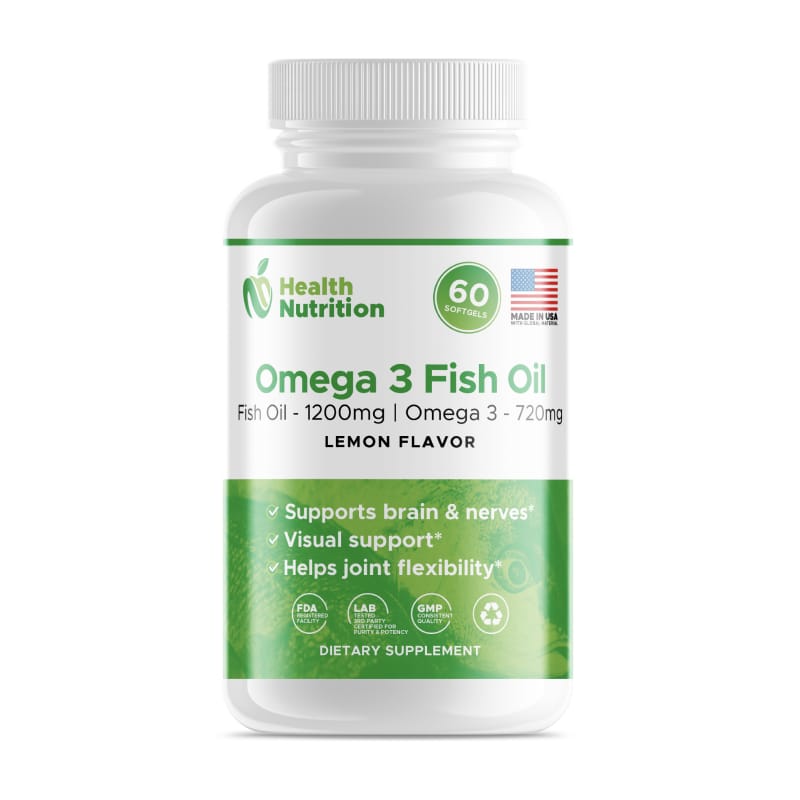Table of Contents
ToggleIntroduction
Inflammation, a vital part of the body’s immune response, is a complex biological process that plays a crucial role in maintaining health.
It is the body’s natural defense mechanism against harmful stimuli such as pathogens, toxins, or tissue damage. When triggered, inflammation brings various immune cells to the affected area, promoting healing and protecting against potential threats.
Prolonged activation of inflammatory pathways can lead to tissue damage and contribute to the development and progression of numerous chronic diseases such as cardiovascular conditions, metabolic disorders, autoimmune diseases, and even cancer.
Definition of Inflammation
Inflammation can be defined as the body’s response to harmful stimuli or injury characterized by redness, swelling, heat sensation at the affected site, and sometimes pain.
When an injury or infection occurs, various immune cells including macrophages (a type of white blood cell) release signaling molecules such as cytokines that initiate an inflammatory response.
This response involves increased blood flow to the affected area along with an influx of immune cells like neutrophils which engulf harmful agents or damaged tissue through phagocytosis.
Effects of Chronic Inflammation
Chronic inflammation can silently disrupt normal cellular processes throughout the body.
Elevated levels of inflammatory markers such as C-reactive protein (CRP), tumor necrosis factor-alpha (TNF-α), and interleukin-6 (IL-6) have been associated with a range of health problems.
These include increased risk of cardiovascular diseases like heart disease and stroke, metabolic disorders like insulin resistance and type 2 diabetes, neurodegenerative conditions such as Alzheimer’s disease, and various autoimmune disorders like rheumatoid arthritis.

Using Supplements as an Approach to Reduce Inflammation
Unlike prescription medications that often come with side effects, supplements offer an alternative option for individuals looking for a more holistic approach.
Supplements have gained attention due to their potential to modulate inflammatory pathways in the body.
Certain nutrients and compounds found in supplements exhibit anti-inflammatory properties by inhibiting pro-inflammatory molecules or promoting the production of anti-inflammatory substances.
As a result, they may help mitigate the chronic low-grade inflammation commonly associated with many health conditions.
Understanding Inflammatory Pathways
One prominent pathway is the cyclooxygenase-2 (COX-2) pathway, which plays a key role in producing pro-inflammatory substances called prostaglandins.
Prostaglandins are necessary for normal inflammatory responses to injury or infection. Excessive activation of COX-2 can lead to chronic inflammation and contribute to several diseases, such as arthritis and cardiovascular disorders.
NF-kB is a protein complex that regulates the genes responsible for initiating the immune response and triggering inflammatory mediators.
When activated, NF-kB promotes the production of cytokines and other signaling molecules that promote inflammation. Dysregulation of NF-kB activation can result in persistent inflammation and tissue damage.
Modulating Pathways with Dietary Supplements
Supplements can be valuable allies in modulating inflammatory pathways and reducing chronic inflammation.
For instance, omega-3 fatty acids derived from fish oil have been shown to inhibit the activity of COX-2 enzymes, subsequently decreasing the production of pro-inflammatory prostaglandins.
By incorporating omega-3 supplements into one’s diet, individuals may experience a reduction in inflammation-related symptoms.
Curcumin, an active compound found in turmeric root, has also demonstrated promising anti-inflammatory effects by targeting multiple signaling pathways implicated in inflammation.
Moreover, curcumin enhances endogenous antioxidant defenses to counteract oxidative stress-induced inflammation.
Omega-3 Fatty Acids
- Play a crucial role in reducing inflammation in the body. Omega-3 fatty acids, particularly EPA and DHA, have been shown to be effective in managing inflammation. Their anti-inflammatory properties help combat many inflammation-driven diseases and conditions.
- Inhibit the production of pro-inflammatory molecules like cytokines and prostaglandins. By inhibiting these molecules, omega-3s can prevent or mitigate inflammation at the cellular level. This helps the body maintain a balanced and healthy response to inflammatory triggers.
- Regulate the immune response. Omega-3s help fine-tune the immune system, ensuring that it responds adequately to threats without becoming overactive. This regulation is crucial in preventing conditions where the immune system attacks the body’s own tissues.
- Promote a healthier inflammatory balance. Chronic inflammation can lead to numerous health issues. Omega-3 fatty acids assist in promoting a balanced inflammatory response, which is essential for overall health and well-being.
- Natural sources include cold-water fish such as salmon, mackerel, and sardines. These fish are rich in EPA and DHA, making them an excellent source of omega-3s. Regular consumption of these fish can help maintain optimal levels of these beneficial fatty acids.
- Plant-based sources include flaxseed and its oil. For those who prefer plant-based sources or are vegetarian/vegan, flaxseed and its derived oil are rich in another form of omega-3 called ALA, which the body can convert to EPA and DHA, albeit at a lower efficiency.
- Fish oil supplements offer a convenient method for ensuring adequate intake. For individuals who might not consume enough omega-3s in their diet, fish oil supplements are an accessible and straightforward way to ensure they receive these vital nutrients.
- The recommended daily intake for adults without specific health conditions is 1-2 grams of combined EPA and DHA. This recommendation ensures that adults receive the benefits of omega-3s without overconsumption. Individuals with certain conditions might require different dosages under medical supervision.
- Generally safe for most people when taken as directed. Omega-3 supplements are well-tolerated by the majority of individuals. Some might experience mild side effects, so it’s crucial to follow dosage recommendations and consult with a healthcare professional if uncertain.

Curcumin
- Source and Active Compound:
- Turmeric root contains curcumin as its active compound.
- Researchers have extensively studied this compound for its numerous health benefits.
- Anti-inflammatory Properties:
- Curcumin boasts widely recognized anti-inflammatory advantages.
- Actively, it inhibits molecules associated with inflammation, such as NF-kB, reducing the body’s inflammatory response.
- Antioxidant Effects:
- Curcumin demonstrates powerful antioxidant capabilities.
- It actively neutralizes harmful free radicals in the body.
- By doing so, it effectively reduces oxidative stress, safeguarding our cells from damage.
- Absorption Enhancement:
- Curcumin, in its natural state, often struggles with bioavailability.
- Scientists have discovered techniques to boost its absorption, making it more effective.
- For instance, when we combine curcumin with piperine, found in black pepper, its absorption rates improve. New formulations have been created to enhance its solubility, ensuring more efficient uptake in the body.
- Dietary Sources vs Supplementation:
- Incorporating turmeric spice in our diets offers a natural source of curcumin.
- to realize its significant anti-inflammatory effects, people often need to opt for supplementation. This method ensures they receive therapeutic levels of the compound.
- Dosage Recommendations:
- Typically, the advised dosage of curcumin ranges from 500-2,000 mg daily.
- It’s crucial to actively seek advice from a healthcare professional before adding curcumin supplements to your daily routine, ensuring safety and efficacy.
Quercetin
- Natural Occurrence:
- Quercetin naturally exists in a variety of fruits and vegetables, making it easily accessible through diet.
- Key sources of quercetin include onions, apples, berries, citrus fruits, and leafy greens. Incorporating these foods can help boost your daily quercetin intake.
- Antioxidant Properties:
- Quercetin actively combats free radicals in the body due to its antioxidant properties.
- By reducing oxidative stress linked to inflammation, quercetin promotes a healthier internal environment and potentially wards off related diseases.
- Anti-inflammatory Benefits:
- Quercetin directly targets and inhibits certain enzymes responsible for inflammation.
- Beyond this, it plays a pivotal role in adjusting the activity of immune cells, ensuring they don’t exacerbate inflammatory responses.
- Potential Health Benefits:
- Allergy sufferers might find relief with quercetin as it can lessen the severity of allergic reactions.
- Athletes and fitness enthusiasts can benefit from quercetin’s ability to minimize inflammation caused by strenuous exercises.
- Supplementation:
- While naturally occurring in many foods, quercetin supplements offer a concentrated dose beneficial for specific health goals.
- For those looking to maximize anti-inflammatory effects, typical daily dosage recommendations fall between 500-1,000 mg.

Herbal Supplements for Inflammation
Boswellia Serrata Extract
Boswellia serrata extract has long been used as a traditional Ayurvedic remedy for inflammatory conditions such as arthritis and asthma.
Its active components, known as boswellic acids, have shown promising anti-inflammatory effects by inhibiting specific enzymes involved in the inflammatory process. Scientific evidence supports the effectiveness of Boswellia serrata extract in reducing inflammatory markers.
It has demonstrated significant benefits in relieving pain and improving joint function in individuals with osteoarthritis and rheumatoid arthritis.
Dosage recommendations for Boswellia serrata extract typically range from 300-500 mg taken three times a day.
Ginger
Ginger, a well-known spice revered for its culinary and medicinal properties, also holds anti-inflammatory capabilities.
It contains an active compound called gingerol which exerts significant anti-inflammatory effects by inhibiting various signaling pathways involved in inflammation. In addition to its potent anti-inflammatory properties, ginger has been traditionally used to alleviate digestive discomfort and nausea.
Dosage recommendations vary depending on the product used but generally range from 1-3 grams of ginger extract per day.

Conclusion
Incorporating supplements with anti-inflammatory properties into your daily routine can be a valuable adjunct to maintaining optimal health and reducing the risk of chronic inflammation-related conditions.
It is important to remember that supplements should be used as part of a comprehensive approach to healthy living, including a balanced diet and regular exercise.
As always, it is recommended to consult with a healthcare professional before starting any new supplementation regimen for personalized advice and guidance.











